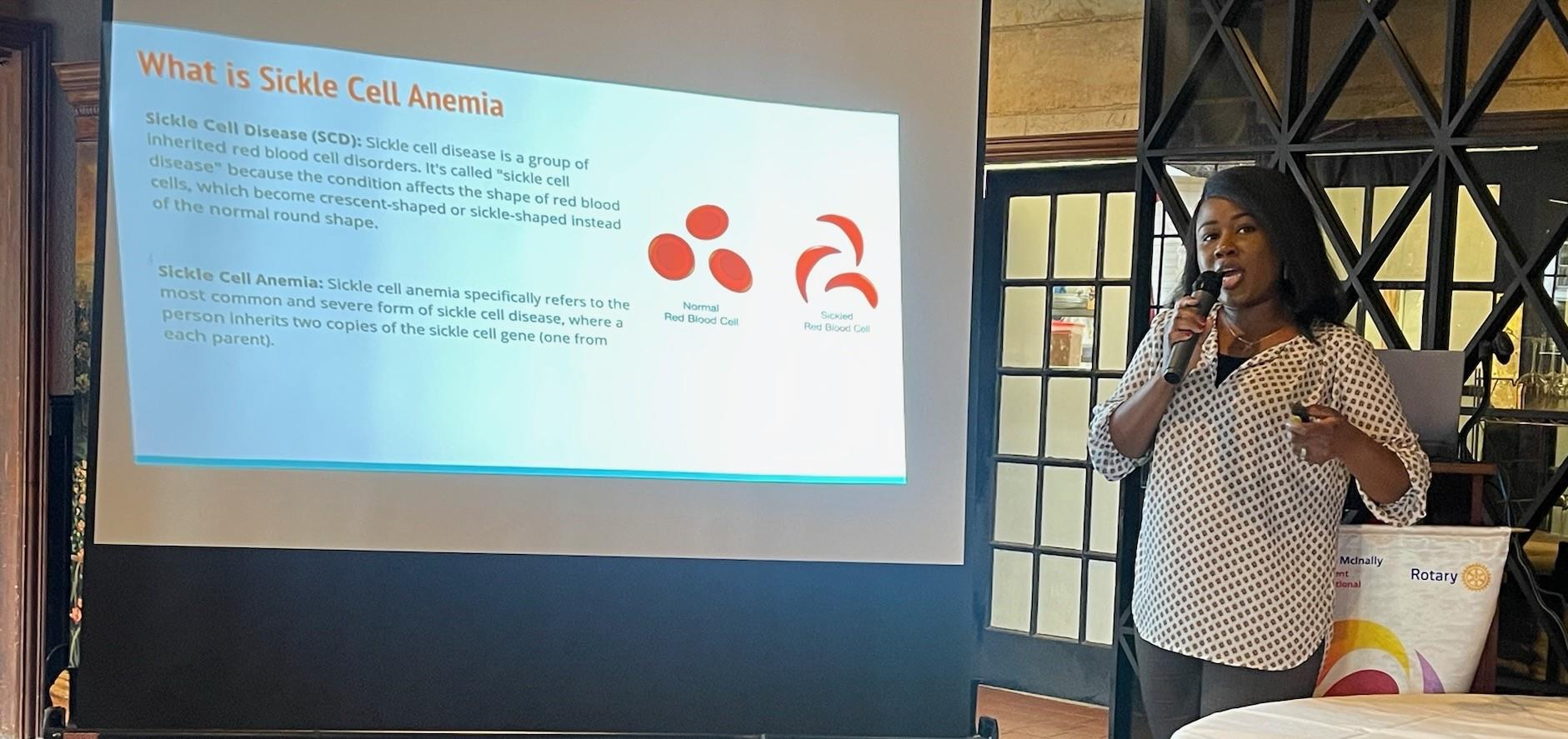Click photo above to open full-size image.
Rotary club member Dr. Michelle Martz last week hosted guest speaker Emma Achale (pictured above) for an eye-opening presentation on Sickle Cell Anemia, a disease of the blood that affects one in 365 Black or African American individuals, according to data from the Centers for Disease Control (CDC).
A native of Cameroon, West Africa, Achale moved to the U.S. at age 14 and was diagnosed with Sickle Cell disease at age 22, when she experienced severe headaches during pregnancy with her first child. “For my pregnancy with my son, I had three blood transfusions,” Achale said. “If there’s nobody to give you that blood, you might not make it,” she added, noting the importance of people donating through blood drives like the one sponsored by the Lewisville Noon club on March 15th at the Cross Timbers YMCA.
Sickle Cell Disease is a group of inherited red blood cell disorders, Achale explained, which causes the cells to become crescent-shape instead of round. The transmutation impedes blood flow, causing debilitating pain. The condition is genetic, and while Achale’s son did not inherit the disease, her daughter does live with the condition. One in 13 African Americans carry the genetic trait for the disease, according to sicklecellanemia.org.
Blood transfusions are the primary form of treatment, Achale explained, adding that bone marrow transplants, gene therapy, pain management through medication or chiropractic care, and hydration or oxygen therapy are other treatment options. The course of treatment depends in large part on the severity of the disease, based on the mutation.
Achale believes it is important to educate others about Sickle Cell Disease to help combat the stigma associated with the condition and also prevent women from aborting babies diagnosed in utero. It is still possible to enjoy a full and fruitful life, Achale said. “I do what I love and I never had any limits because of Sickle Cell,” she noted, especially because blood drives make it possible to get a transfusion when needed.
